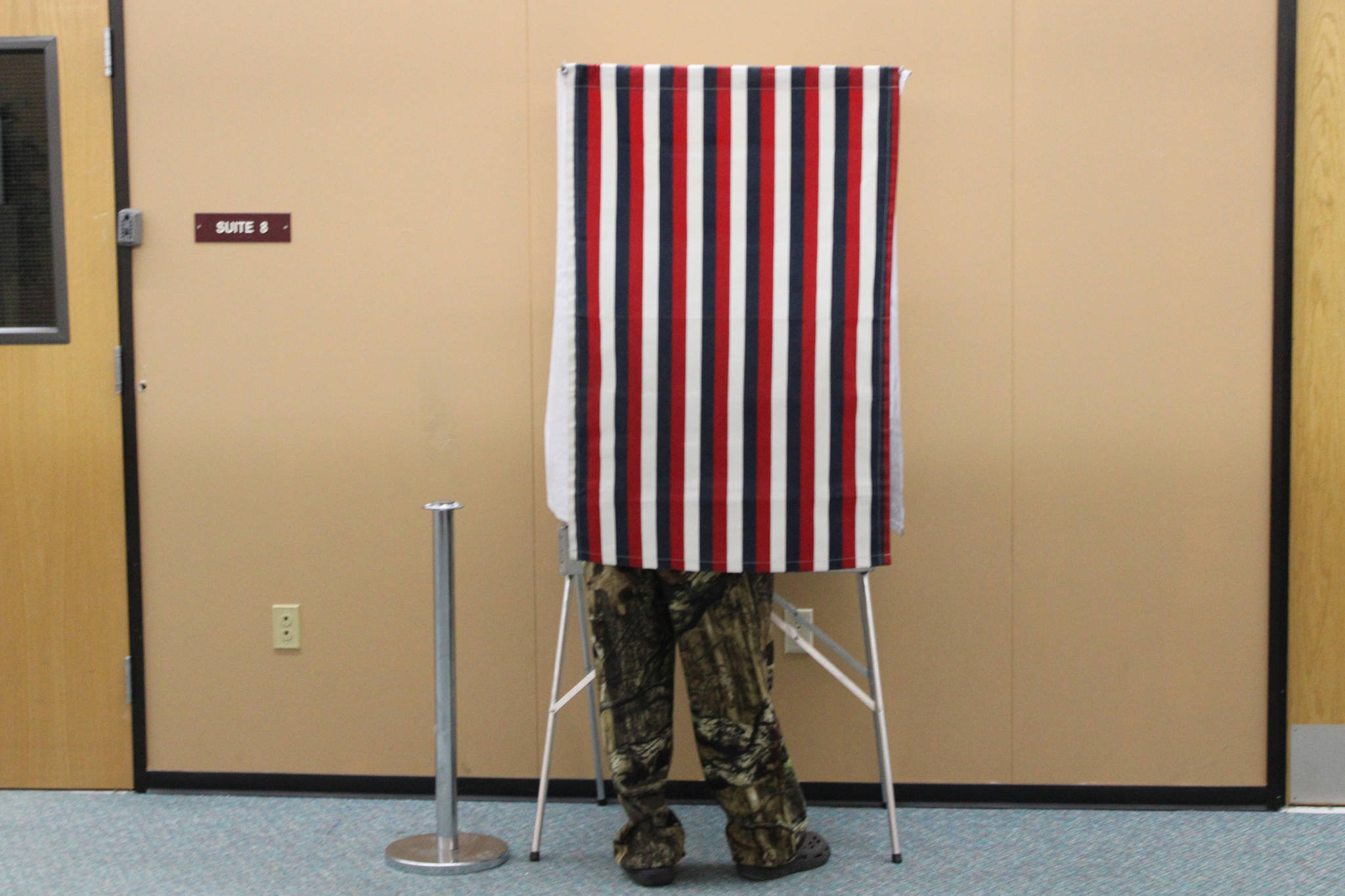The Anchorage Field Office of the FBI issued advisories Monday ahead of Election Day giving public guidance on federal election laws and election security and how to report it if witnessed.
The states have the primary responsibility to manage elections, the FBI said in a news release, but the agency stands ready to investigate federal election crimes.
Federal election crimes include voter suppression, voter fraud and campaign finance laws, among others.
“For decades, the FBI has served as the primary law enforcement agency investigating federal election crimes. This includes investigating allegations of voter and ballot fraud, campaign finance crimes, civil rights violations, unique cyber threats targeting the election process, and threats posed by foreign governments and actors,” the release said.
The FBI has increased its messaging about election security across all its social media platforms, the release said, in order to increase public awareness of voter crimes and how to report them. The agency notes that states have their own laws regarding elections, and though something may not be a federal crime it could violate state law.
The FBI defines voter suppression as “intentionally deceiving qualified voters to prevent them from voting” and urges voters to rely on trusted news sources and official agencies for their information.
[Set expectations for a very different Election Day]
“Always consider the source of voting information. Ask yourself, ‘Can I trust this information?’ Look for official notices from election offices and verify the information you found is accurate,” the FBI’s webpage on election crime says.
According to the FBI, bad actors use various methods to spread disinformation about voting such as social media platforms, texting, or peer-to-peer messaging applications like WhatsApp or Facebook messenger on smartphones. They may provide misleading information about the time, manner or place of voting, the agency said. This can include inaccurate election dates or false claims about voting qualifications or methods, such as false information suggesting that one may vote by text, which is not allowed in any jurisdiction, according to the FBI.
The FBI also warns of foreign influence campaigns that use social media and other methods to spread misinformation in order to provoke conflict.
Giving voters a ride to the polls or time off to vote, offering voters a stamp to mail an absentee ballot, making false claims about oneself or another candidate, forging or faking nominating petitions and campaigning too close to the polls are not federal election crimes, the FBI said, but may violate state law.
Alaska law prohibits circulating cards, handbills, or marked ballots, or posting political signs or posters relating to a candidate or election proposition or question within 200 feet of an entrance to a polling place on Election Day.
Alaska’s Division of Elections has issued its own guidance on what to expect on Election Day including long lines and fewer poll workers. The division is also working to make Alaskans aware that results may change after Nov. 3 due to the large number of mail-in ballots. Counting for mail-in ballots doesn’t begin until seven days after the election.
DOE similarly urged Alaskans to be wary of information passed on social media that isn’t from a verified government or trusted news agency account.
Information about allegations of federal election crime in Alaska can be reported to the FBI Anchorage Field Office at 907-276-4441 or emailed to tips.fbi.gov. Alaska voters may find out where their polling place is located by calling, 888-383-8683 or at elections.alaska.gov.
Polls will be open from 7 a.m. to 8 p.m. on Election Day.
• Contact reporter Peter Segall at psegall@juneauempire.com. Follow him on Twitter at @SegallJnuEmpire.

